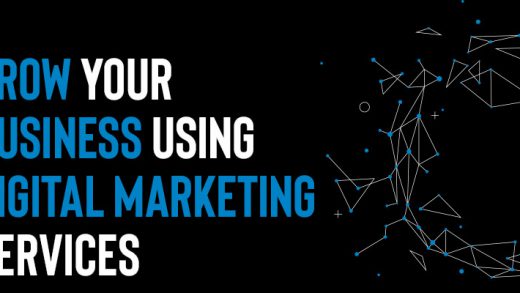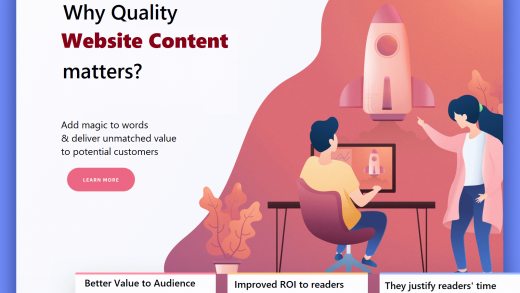When small businesses embark on their journey, their initial focus often revolves around attracting the first customers through traditional advertising methods like print ads, coupon mailers, or outdoor promotions. This approach relies on the belief that a quality product or service will inevitably draw customers over time.
However, a more effective and efficient strategy exists: tapping into the global online marketplace. Small businesses should integrate digital marketing into their overall strategy, merging traditional and online approaches. Ignoring digital channels can limit a business’s potential to generate leads and convert interest into customers.
The benefits of digital marketing for small businesses are substantial. Online platforms offer a vast global audience, providing opportunities for significant business growth. By leveraging digital marketing, businesses can enhance their visibility, connect with a broader range of prospects, and convert leads into loyal customers. Integrating both traditional and digital marketing ensures a comprehensive approach that maximizes a small business’s potential in digital marketing to help small businesses repetitive market.
Digital Marketing helps small businesses:-

1. Increased Visibility and Reach: Digital marketing plays a pivotal role in enhancing the visibility and reach of small businesses. (i)Online Presence: Utilizing digital channels such as websites and social media platforms, small businesses can establish and bolster their online presence. This presence allows them to showcase products or services, interact with customers, and build brand awareness.
(ii)Search Engine Optimization (SEO): By optimizing their websites for search engines, small businesses can improve their online visibility. SEO techniques involve using relevant keywords, creating high-quality content, and refining website structure, making it easier for potential customers to discover the business through online searches.
2. Targeted Advertising: Digital marketing offers valuable support to small businesses through targeted advertising, providing precision targeting and cost-effective campaigns. (i)Precision Targeting: Digital marketing platforms enable businesses to hone in on specific demographics, locations, interests, and behaviors. This precision ensures that marketing efforts are directed toward the most relevant audience, increasing the likelihood of engaging potential customers who are genuinely interested in the products or services offered.
(ii)Cost-Effective Advertising: Online advertising, a key component of digital marketing, often proves more cost-effective than traditional advertising channels. Small businesses can allocate their budgets more efficiently, as digital platforms typically offer flexible options such as pay-per-click (PPC) advertising. This affordability enhances accessibility, allowing even businesses with limited resources to engage in impactful advertising campaigns.
3. Data Analytics and Insights: Digital marketing offers significant benefits to small businesses through data analytics and insights. (i)Performance Tracking: Small businesses can leverage digital marketing tools to track and analyze the real-time performance of their marketing campaigns. This data-driven approach enables businesses to assess the effectiveness of their strategies promptly. It allows for the measurement of key performance indicators (KPIs) and provides insights into what is working well and what may need adjustment, fostering continuous improvement.

(ii)Customer Insights: Analyzing customer behavior and preferences through digital marketing channels yields valuable insights for small businesses. By understanding how customers interact with online content, products, and services, businesses can make informed decisions to refine their offerings. These insights can inform product development, improve customer experiences, and guide the creation of targeted marketing campaigns that resonate with the audience.
4. Engagement and Interaction: Digital marketing facilitates increased engagement and interaction for small businesses, particularly through social media platforms.(i) Social Media Engagement: Small businesses can actively engage with their audience on platforms like Facebook, Instagram, Twitter, and LinkedIn. Through posts, comments, and direct messages, businesses can build a community around their brand. This engagement helps create a more personal connection with customers, enhances brand loyalty, and provides a platform for real-time communication.
(ii)Customer Feedback: Digital marketing channels enable small businesses to collect and respond to customer feedback effectively. This feedback loop, often facilitated through online reviews, surveys, or social media comments, allows businesses to understand customer satisfaction levels and areas for improvement. Responding promptly to feedback fosters a sense of community and trust, showing customers that their opinions are valued and encouraging a positive brand perception.

5. Cost-Effective Content Marketing: Digital marketing supports small businesses by offering cost-effective content marketing strategies, focusing on blogging/content creation and email marketing.(i) Blogging and Content Creation: Small businesses can establish their expertise and attract a loyal audience by creating and sharing valuable content through blogs, videos, and other formats. This content not only provides relevant information to the target audience but also contributes to improved search engine rankings. This cost-effective strategy allows businesses to showcase their knowledge, build credibility, and engage with their audience without significant financial investments.
(ii)Email Marketing: Sending targeted and personalized emails to the audience is a cost-effective way for small businesses to nurture leads, build relationships, and drive sales. Email marketing platforms offer affordable solutions to reach a wide audience with tailored messages. Through segmentation and personalization, businesses can deliver content that resonates with specific customer segments, increasing the chances of conversion. Additionally, email marketing allows for easy tracking of campaign performance, enabling businesses to refine their strategies based on data insights.
6. E-commerce Opportunities: Digital marketing opens up e-commerce opportunities for small businesses. (i)Online Selling: Small businesses with products can leverage digital marketing to establish and grow their e-commerce presence. By utilizing platforms like websites, social media, and online marketplaces, businesses can reach a broader audience beyond their local market. Digital marketing strategies, including social media advertising, search engine optimization (SEO), and email marketing, enable businesses to showcase their products to a global audience, drive traffic to their online stores, and facilitate sales. This not only expands their customer base but also provides the convenience of online transactions, contributing to the overall growth and success of the business.
7. Adaptability and Flexibility: Digital marketing offers small businesses a significant advantage through its adaptability and flexibility. (i)Quick Adjustments: Digital marketing campaigns can be swiftly adjusted and optimized based on real-time data and changing market conditions. This level of agility allows small businesses to respond promptly to shifts in consumer behavior, emerging trends, or unexpected events. Unlike traditional marketing methods, digital campaigns provide the flexibility to make instant changes, ensuring that businesses can stay relevant and effective in a dynamic and fast-paced online landscape.

8. Competitive Advantage: Digital marketing provides small businesses with a competitive advantage by leveling the playing field and enabling them to compete effectively with larger enterprises. Leveling the Playing Field: Digital marketing creates a platform where small businesses can compete on equal footing with larger enterprises. Unlike traditional marketing which often requires substantial financial investments, digital marketing emphasizes creativity, innovation, and customer engagement. Small businesses can leverage social media, content marketing, and targeted advertising to connect with their audience, build brand awareness, and showcase their unique value propositions. This democratization of marketing channels allows smaller businesses to establish a strong online presence, effectively reach their target audience, and compete based on the quality and relevance of their offerings rather than sheer marketing budget size. In this way, digital marketing levels the playing field, empowering small businesses to thrive in the competitive landscape.


